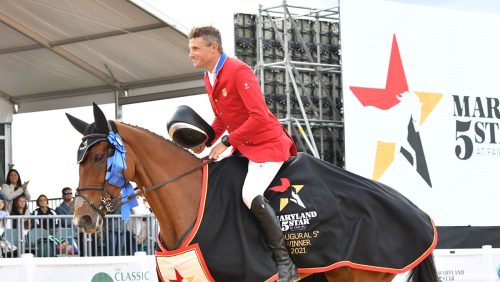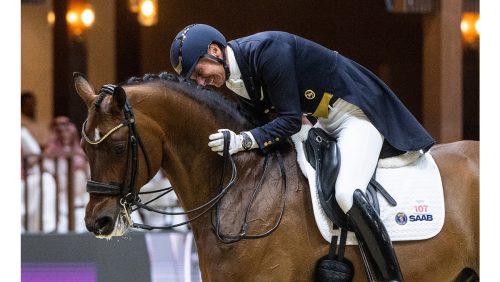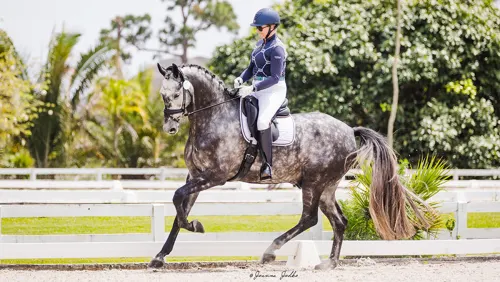Each year I give a series of clinics in Oregon, which I think is God’s country populated by people who appear to appreciate living in this gorgeous part of the world. Before leaving one spring, the organizers asked me what I’d like to do on my day off.
Fly fishing was one of the options, and I immediately went for it. As a child, I’d spent thousands of hours fishing with my father in the archipelago of Stockholm, and I thought I knew how to fish.
So, I was pretty cocky when I arrived at the lovely Steamboat Inn on the North Umpqua River. Then I read up on the history of the inn, and I realized that perhaps this was not fishing the way I knew it. The article told me a little about the really famous fly fishermen in the area, and the star of them all was some guy named Frank Moore.
In the evening I was casually told that “Frank would take me fishing,” but not in my wildest dreams did I expect it to be the Frank. Well, when I was informed that it was indeed the Frank, I could barely sleep that night.
Imagine being a training level hopeful who’s been told that Harry Boldt will be there to give you a lesson in the morning!
I was pretty nervous as we drove to meet him and his wife at their huge log cabin, and I was fairly baffled at the “waders” the handsome elderly man had me put on. But, properly outfitted, fishing rods in hand, Frank and I proceeded to the bank of the swiftly running river and started my course in fly fishing 101.
In spite of all my fishing experience, this was a whole new game “within the game,” just as if I were handed a Saddlebred and told to go exhibit all five gaits. For hours, this infinitely patient hero of fly fishermen explained and showed me again and again how to control the line in the backstroke, how to keep it flowing straight out behind me, and how to use the lower arm and wrist to land the line in the river where I actually aimed it.
It was all about balance, feel and measured muscle power—a lot like when you first learn to put a horse on the aids. And, just the same way, sometimes the magic worked, and sometimes it didn’t!
Between sessions, Mr. Moore would take the rod and show me how it should really look. He would show off some of his variations on the theme, such as “rolling” the line over the water until it almost reached across to the other side of the river.
ADVERTISEMENT
It reminded me of watching Herbert Rehbein get on another rider’s horse and within minutes transform the horse into a different animal in front of our very eyes. I saw that happen so many times, and still it would give me goosebumps to get a glimpse of what even a mediocre horse could do with a genius rider to guide him.
When my “technique” had advanced somewhat beyond catching bushes behind me and plunging the tip of the rod into the river, Mr. Moore decided to up the ante.
“Let’s go,” he said, and before I had time to ask where, he had grabbed my hand and dragged me into the river. With the greatest of ease, he leaped like a frog from rock to rock, while I shuffled behind him with terror in my heart.
He kept a firm hold of my hand as we proceeded, with the whirling water sometimes to our waist. I was reminded of early longe lessons without stirrups or reins, when the horse would get silly and start playing and bucking. Stay within the center of gravity and trust your instructor not to let go of that pony, and it may end well, I thought then. Lose your balance and your faith, and you bite the dust.
Eventually, I learned that looking for a spot to put my feet was useless, since the foaming waters revealed nothing, and the current would knock them out of place anyway. You just had to feel your way with your feet, like they teach you on the balance beam in gymnastics.
Finally, we stood on the edge of a rock in the middle of the river, with 6 feet of rapidly moving water below us. And Mr. Moore said, “Start fishing!”
All I could think was that if one of those wild salmons bit now, it would rip me off this rock, and they’d find my remains downstream. It was the same feeling I had when I entered the dressage stadium at Aachen (Germany) as the doors closed behind me and wall-to-wall people, all with two eyeballs, seemed to engulf me.
But, somehow, once you get to X (or in the river), it’s all about your horse (or the rod) again, and the game takes over.
I started swinging the rod, and the line seemed to float farther into the river and be more supple than before. That same positive excitement that competition can give you was similar to the kick that the river supplied, and no other energy makes you feel so alive.
ADVERTISEMENT
“What did you catch?” asked my husband when I finally stopped gushing over my adventures at the river. Not until then did it occur to me that I’d never landed a fish. I’d just had a few “bites,” one by a good-fighting salmon that cut the line on a rock and split.
So, I didn’t get “a ribbon.” But it didn’t matter. I’d forgotten about catching anything; it was all about surviving and learning and being so involved that I had no sense of time passing.
It was a lot like riding a good horse and trying to find that feeling of effortless flow you know lives there someplace but keeps evading you, except for a precious moment here and there, when you can sit quite still and just melt into your horse while he carries you forward like a cloud moving in the breeze.
Anne Gribbons was the U.S Equestrian Federation technical advisor for dressage from 2010-2012. She has trained and shown 15 horses of her own to Grand Prix and competed in 10 national championships, as well as in Europe, including the Aachen CHIO (Germany). Seven of her horses have been named U.S. Dressage Federation Horse of the Year, and she was a member of the 1995 Pan American Games silver medal-winning team for the United States. Anne is a Fédération Equestre Internationale five-star judge, and she was a member of the FEI Dressage Committee from 2010-2013. She was inducted into the Roemer Foundation/USDF Hall of Fame in 2013. Anne started contributing to Between Rounds in 1995, and a collection of those columns is now available in the book “Collective Remarks.”
This article originally ran in The Chronicle of the Horse magazine.
Subscribers may choose online access to a digital version or a print subscription or both, and they will also receive our lifestyle publication, Untacked. Or you can purchase a single issue or subscribe on a mobile device through our app The Chronicle of the Horse LLC.
If you’re just following COTH online, you’re missing so much great unique content. Each print issue of the Chronicle is full of in-depth competition news, fascinating features, probing looks at issues within the sports of hunter/jumper, eventing and dressage, and stunning photography.
What are you missing if you don’t subscribe?















